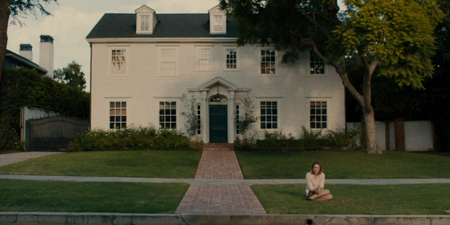This is already a fascinating piece of film memorabilia.
Irish director Lenny Abrahamson has shared the first letter he wrote to Room author Emma Donoghue, in which he pitched for the chance to direct the film adaptation of her brilliant novel.
It’s a very personal, impassioned letter in which Abrahamson cautions Donoghue against choosing other directors to put her words on screen – Abrahamson shows from the outset how well he understands her vision.
https://twitter.com/lennyabrahamson/status/697103289784147968
‘It’s one of the strengths of ‘Room’ that the relationship of mother and son is not shown in any idealized way,’ he writes.
‘Ma’s occasionally intense frustration with Jack – desire to be away from him, not to have his needs, his demands constantly tugging at her – is something any parent will recognize. One of the brilliant insights of the novel is that, while inside room, where she is under the most intense pressure and can have no space of her own (except by psychologically shutting down) Ma is better able to control this reaction than when she is on the outside.’
Writing about how he would set about framing the heart of the film – which is seen from the point of view of young Jack – he adds…
‘The territory explored in ‘Room’ should have made for a relentlessly bleak novel. The author’s brilliant choice of Jack as narrator is what prevents this.
Jack shields us from a too raw encounter with the terrible facts of room which might otherwise reduce the expressive range of the novel to a single note of horror. Thinking about this, the main challenge which arises for me in imagining a film adaptation is how to achieve something similar without a first person narrator. In the end, it won’t be any single stylistic choice which will answer this question.
There will be many things that will make this Jack’s film. At the most basic, physical level, we should always be with Jack, never seeing or hearing anything he wouldn’t be able to see or hear; when he’s in the wardrobe, we’re in the wardrobe with him, when he’s wrapped in the rug playing dead we’ll be with him, on his face, or seeing what little he can see, and not relieving the claustrophobic closeness with a wide shot until he frees himself and is assailed by a vast and overwhelming outside world.’
To read Abrahamson’s letter in full, click here >
LISTEN: You Must Be Jokin’ with Aideen McQueen – Faith healers, Coolock craic and Gigging as Gaeilge












































